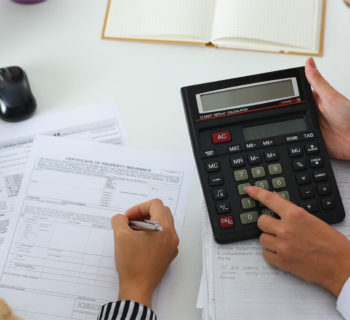To actually benefit from tax reductions, certain documents are required by the tax authorities. All you need is a checkbox on your tax return to be able to tax a portion of your income.
According to the laws, we tell you the documents to provide or fill in to optimize your real estate investment:
Malraux Law:
Since 2009, for the Malraux tax declaration, you must fill out the 2044 S form and then report the results obtained on the 2042 declaration. Do not forget to add the copy of the lease, the prefectural authorization for carrying out the work and the copy of the visa of the architect of the buildings of France who carried out the work.
Historic Monuments Law:
The tax declaration to benefit from the advantages of the Historic Monuments Law is complex. If the building does not provide any revenue, you must complete declaration 2042 in “miscellaneous deductions”. If it provides revenue, the land charges must be deducted on a 2044 S declaration. If you live in the building, both declarations must be completed. You will also need to check the “Works and Historic Monuments” box. For your first declaration during a first operation in Historical Monuments, you must provide a three-year bare rental commitment.
Censi Bouvard law:
The tax declaration for a real estate investment under the Censi Bouvard law is done on the 2042 section of your tax return.
Girardin Law:
When declaring your taxes, you will have to fill out forms 2041 GE and 2044 in order to prove to the tax authorities your purchase in Girardin law. You will add these forms to your regular tax return.
Pinel Law:
You must complete the CERFA 2044 EB declaration during the first year only. This document commits you to renting your property for a minimum period of 6 years. You must also declare the property balance sheet for the operation using form 2044 or 2044-SPE. You must then report this property balance sheet to the CERFA 2042 declaration as well as to the 2042C, for the calculation or deferral of the tax reduction. You can click here and have all the options tax submissions available.
Residents and non-residents alike ask themselves each year whether they have an obligation or whether they can benefit from an advantage in completing a tax return in the country. This article aims to answer common questions asked to our personal tax department.
Who Is Required To Complete A Tax Return?
In the country, whether for residents or non-residents (or individuals according to the jargon used), establishing a tax return is not automatically compulsory. The tax declaration becomes compulsory in the following cases:
- Taxable income greater than 100,000 € euros per year.
- Taxable income greater than € 36,000 per year for class 1 and 2 persons with multiple taxable incomes in the country.
Example: In the case of a married couple, one earns € 25,000 per year and the other earns € 20,000, their cumulative income is greater than € 36,000 per year. They must therefore file a tax return.




















